|
The tagline is best embroidered on a pillow, then burned. Cover image from Wikipedia I adored everything about "Everything, Everything." At first. After reading the e-book sample, I had absolutely no doubt when I purchased the whole book. I was really looking forward to spending time with this protagonist, Maddy, based on what I'd read so far, and the young romance was adorable and believable. And she has a chronic illness, like meeee! Maddy's voice is immediately clear and distinct, charming and authentic. She's cooped up in her bedroom because she can't be exposed to germs or allergens. But because she's been exposed to the world through movies, books and the internet, she often thinks similarly to a typical teenager. The main difference is she gets along almost perfectly with her mom, because her mom is most of her very small world. And because rebellion can't reasonably compete with the legitimate threat of certain death since before you can remember. At least not until Maddy has something or someone specific worth rebelling for. I felt like I could relate to Maddy, because I have been a sickly (if un-diagnosed) teenage girl with a very protective mom, and I know what it's like to just want to live, and see, and do, but be limited by your body and your mom. This early-novel Maddy is actually way more limited than I have ever been, which has the bonus of letting me feel a little sorry for her, instead of the other way around like in real life. I started writing this post having not seen any other reviews of the book, but having read and agreed with the awesome Ava Jae on the problems in general with literary Miracle Cure or dead-protagonist endings. But now I've read some of these reviews, and it's made me consider new aspects of the book, while also feeling like some points were made so well by those reviews that I won't attempt to thoroughly re-address them here. I should say that this review is meant for people who have already read the book, or who are trying to decide whether to read the book or not and don't care whether major and minor plot points are revealed to them (including people who may have seen the movie, which I have not yet). And this is a good time to warn anyone else that ... SPOILER ALERT! Wikipedia: CC BY-SA 3.0, https://commons.wikimedia.org/w/index.php?curid=165258 Spoilers from here on out. We quickly learn that Maddy is trapped inside because she tells us she has SCID, or severe combined immunodeficiency. A lot of people refer to this as "bubble boy disease" or some variant of that, which might be incredibly irritating or offensive to some people with SCID, while some people with SCID might not care, or even use the term themselves. Just like how not all people with Crohn's love (or hate) diarrhea jokes, and not all accountants like blueberry muffins. Sick people: They're just like us! I guessed the twist ending to the book at some mid-book point, maybe partly because I'm sick a lot and scrutinize medical care depicted in fiction, but also because despite my hatred of other people spoiling plot twists for me, I like to try guessing early on. And also because it's not that hard to guess in this case, if you notice the red flags the author has planted for us: First red flag: Maddy never sees any doctors other than her mom. Ever. Her architecture teacher is allowed in sometimes, because apparently that's very important. But Maddy's mom is the only MD who ever monitors her health (and the nurse's monitoring seems to be both not substantial enough--blood pressure and heart rate--but also irrationally frequent considering she's trapped indoors, at a level only warranted for someone exposed to both Ebola and OCD). Second red flag: And the whole backstory with the traumatic loss of Maddy's father and brother seemed an important detail that would be largely irrelevant to the story if not to explain and foreshadow something else (mom's mental state), and also to conveniently not have any family members around to question why Maddy's freedom is so severely limited. Third flag, pink and half-mast: I'm not sure how much of this was intentional, but there were some "soft" red flags for me as well. It seemed like Maddy's future aspirations had been too quashed (presumably by her mom, at some point, overt or implied) and were framed more around her always relying on her mom. For instance, couldn't Maddy reasonably move out into her own house, maybe even where Olly comes home to an airlock each day? Couldn't Maddy study to be an architect, even in her little bubble? Couldn't she have at least gone on birthday joy rides with her mom around town in a purified car (and hell, why not swing by the immunologist's office while we're out?)? Couldn't a lot of different people have safely communicated with her through their big windows downstairs? And shouldn't her mom be training her to be at least a little independent financially and emotionally, since her mom could die before Maddy did (and then who would play Fonetik Scrabble with her and pay off her Hawaii-trip credit card balances?)? (As an aside, as another reviewer pointed out, it's a little hard to believe that Maddy never, ever thought to Google her own illness, see what treatments might be available, even join an online SCID support group or message board. So that's less a red flag for the twist ending than just a seemingly overlooked or ignored detail.) Several things were just a little off, which is of course intentional, to give the reader the "ohhhh!" reaction instead of the " Wha ... but wait, though ... " when we find out. We're supposed to both have not guessed it, but also realize we had the clues all along (*like the ending for "The Sixth Sense"*) so we're not angry at the storyteller for tricking us. That is how it's supposed to go. So, the plot cranks forward. Ultra Sick Girl meets a super-healthy and fearless (but secretly some fears related to his family, which will help us swoon over him) boy, they fall in love and even kiss despite the risks, and Maddy runs away with him to Hawaii. But then she gets extremely sick and is rushed to the hospital, presumably proving her mom was right all along. But theeeeeen, Maddy gets an email from the hospital doctor who treated her in Hawaii (her first encounter with a non-Mom MD in maybe 17 years) that says she doesn't think she's ever had SCID and to see another doctor about it, confronts her mom about this, her mom's all weird about it and has no good explanation, yadda yadda, then Maddy says: "And that's when I know for sure. I am not sick and I never have been." And that's when I knew for sure: I'm gonna have some major issues with this ending. I started feeling fidgety and filled with mild dread, because while I loved the main characters and the story up until that point, and even agreed that "whoa, that is a big twist that could be interesting," I couldn't help but feel resentful that I'd been duped. I was made to feel like this character and I shared this fate--a chronic illness that was often a heavy fog over our capacities to live our lives how we wanted. And then it turns out Maddy, my new sick friend, got The &$%@# Miracle Cure and ditched me. It's better than her dying, for sure--I was worried for a short while that that would be the ending. But the same type of damage is done by her being cured. Because as YA author and blogger Ava Jae has discussed, these YA illness books killing or curing all their chronically ill characters sends the message that your life isn't worth living if you have to be sick. They tell teens they should devote every scrap of the limited energy they have not to making the best of the situation and acting in reasonably healthy ways, but in "solving" their illness problem once and for all, and if that doesn't work out, just blow a ton of borrowed money and risk your entire life to go on one kick-ass trip, even if it kills you. Be cured, or risk death! Which is a terrible message, because you don't have to make your one purpose in life be getting completely better or even halfway better, because: A) This may never happen, B) For many of us, this is very, very unlikely to ever happen, C) You're likely a person who has other, more important qualities than your illness, D) You are a person worthy of love, admiration and respect, the same as anyone else, and your life is just as worth living as a Perfectly Healthy Person's (whoever that mysterious, obnoxious person may be), and D) This whole outlook of "the key was inside you all along" sets illness up to be viewed in our culture as a moral failing--that you just want to be sick, that you gave up and stopped trying to get well just because you won't pay $400 for LEAP testing, or try Whole 30 just in case it cures everything for everyone everywhere. It's a culture that is uniquely set up both to blame you for not eliminating gluten/dairy/cats/onions/mushrooms or whatever to cure yourself, and then to mock you for eliminating these same things. You're either lazy and self-defeating, or an obsessively obnoxious dork, or an insufferable damaged snowflake. You can't win--unless of course you do manage to cure yourself, in which case phew, you're one of us now, and we can stop making pouty sympathy faces at you and admit that we're super-annoyed when you dine out and request a special order for "health reasons." It's a culture that is uniquely set up both to blame you for not eliminating gluten/dairy/cats/onions/mushrooms or whatever to cure yourself, and then to mock you for eliminating these same things. But maybe we should lay off, one might argue; I mean, surely this woman should just be allowed to tell a good story, right? Do we all have to be so sensitive and trigger-warning-happy that we can't even create a decent, high-stakes twist at the end of a book? I'd say yeah, you can tell whatever story you want. And no, you don't have to be sensitive; you can write whatever someone will publish, including if that publisher is you. But if you aren't a member of the group you're writing about, and you're writing something you care about and want to be proud of, wouldn't you want to actually talk to real people with the illness you're writing about, to make sure you're not way off about some part of their experience? Won't that only make the creative process easier for you? Note: If all this sounds like a real drag, you could always set your book in a made-up universe with a fictional illness, and make your main character non-human. One extremely successful example of someone writing thoughtfully on an illness they don't themselves have: John Green wrote "The Fault in Our Stars" without being female, teenaged, or having terminal cancer, but he had experience as a children's hospital chaplain. Because he's exceptional at what he does AND did his research on the people and not just the disease, he was able to pick up the voices of both Hazel and Gus and write a book that felt incredibly real. But then again, it felt incredibly real to me, and I am not a teenaged girl with terminal cancer, either, and neither are most of Green's readers who made the book so successful. It might be successful because it talks about this experience in a way that a lot of us think we'd experience it, but I'd bet his sensitivity readers were fantastic; he talks a little about his pre- and post-publication readers here. (Here's one young cancer patient's mixed take on the movie.) So I didn't like everything, everything, but ... “So, if I could change one moment, which one would I pick? And would I get the results I want? Would I still be Maddy? Would I have lived in this house? Would a boy named Olly have moved in next door? Would we have fallen in love?” If I wasn't sick, would I have even met my wonderful husband? Would I have even transferred to the college he was attending? Would I have been at the animal shelter at the exact right time to adopt my sweetie of a dog? And if Nicola Yoon had made Maddy's immune system even weaker and more vulnerable after being held captive by her mom's false belief, would the story have been as good? I wondered at first, but I think it actually could've been even better. "Everything, Everything" does some of the emotional part of this -- "Who will I be if I'm not sick?" But because I'm still sick--and she would be, too--then I'd like us to not gloss over this and run so carelessly into the omigosh unburdened future of Maddy's healthy life. And that brings us back to the real problem with the book--the consequences of her illness (getting the viral infection in Hawaii) are totally brushed under the rug when it's revealed she doesn't have SCID, and then the narrative IS truly careless in pretty much endorsing her brushing off her new doctor's warnings to go slowly. (Again, not that she wouldn't actually do this, because I think it's likely a teenager in this scenario absolutely would've. But could you not have thrown a nasty bout of flu her way between then and meeting Olly at the NYC used bookstore? Or even show her secretly wearing nitrile rubber gloves under her winter gloves? This would show that Maddy's growth and change (essential for a compelling story) isn't exclusively about being independent enough to rack up credit card debt and turn off the air filter, but also about her developing and calibrating her own responsibilities to her health. It felt a little like a "Twilight Zone" episode ending (spoilers of classics ahead)--they're all pig-faced! They cook humans! Her mom was the sick one all along! I guess if I could change one thing, it's the book's tagline, at the top of its cover: "The greatest risk is not taking one." Oh, really? That's the greatest risk to someone who's almost never been exposed to germs, then develops a severe heart infection the first time her immune system is really tested? It might be true of risks like falling in love, asking your crush to prom, moving out and going away to college, changing careers, trying out for the lead role in the school play. For me, someone without SCID but with a GI Illness, it'd be international travel to low-risk destinations, eating organic cheeseburgers, and drinking my share of high-quality pina coladas (check, check, cheeeeck). But if you're fighting to maintain fair health or even stay alive, like so many young people with chronic diseases? It's a little scary to promote this notion. The tagline is best embroidered on a pillow, then burned.
If the author had chosen another ending entirely, one that might make Maddy a "bubble girl" forever, would that make me happier? Not necessarily, depending on how it was handled--that could either be pretty depressing, or handled in a way that showed the value of a life while sick. I really just want a little more about the consequences of her captivity. Because as the book and movie "Room" explored, even if you leave your little prison that a mentally unstable person crafted for you, you can never really leave that prison. You can physically escape, but it will change you; you will lose things and you will gain things. The damage is inside your head, and will take more than a plane ticket and a cell phone to fix. The book and movie "Room" devoted as much time to *spoiler alert, even though it's in the previews* post-escape life as to pre-escape. We get a much more haunting and lasting impression of the toll that mental illness and abuse takes. A way to modify the plot could be that Maddy was diagnosed as a baby with SCID, but there were (or eventually were, since there are) treatments that could have given her more freedom, but her mom was so anxious that she wouldn't even think of it. Maybe Maddy would always have to avoid eating the top allergens but could go to college to study architecture, on a reduced schedule. She could have hugged friends and designed buildings and kissed boys and birthed babies, but with caution and modifications and lots of rest, and non-maternal medical care. Or it could be that she never had SCID, but now has a moderately severe immune deficiency due to being hidden away for so long, that may or may not need to be treated with stem cell therapy. But the author doesn't explore much of this. And because of this, the big twist to shake things up doesn't live up to the initial hype. The narrative fizzles soon after the big reveal, especially around issues of Maddy's mom's mental illness, their relationship going forward, and the aforementioned ongoing medical consequences. Readers with parents with mental illness could have found that to be a point where they really identified with Maddy, having beared the consequences of harm from an unstable caregiver. And that would've been great, but we didn't stay with it for long enough. It seemed like after Yoon revealed the secret, she was ready to wrap this book up ASAP, not really interested in writing about any of this fallout. It felt a little like a "Twilight Zone" episode ending (vague spoilers of classics ahead)--they're all pig-faced! they cook humans! her mom was the sick one all along! If it was leaving room for a sequel to explore all of this, it didn't give me a ton of faith that it'd deliver on that. Yoon is clearly a very gifted YA writer; I still enjoyed this book to a large degree, really enjoying everything before I saw that her not having SCID meant that we'd see her being a "cured" person. But I wonder what her illness-having sensitivity readers had to say about how this twist ending made them feel. Were they able to separate themselves from identifying with Maddy's condition from the beginning, so it didn't feel like a rejection? Did they feel like bubble illness was too extreme to identify with that closely? Did they give advice that wasn't taken? It's only recently that the actual groups of people you're writing about had any kind of real influence over what gets chosen to be published, or in critiquing what already got published, and this is a very good thing for books overall, and can be a good thing for authors who embrace this. One wonderful way to make sure chronic-illness fiction gets the illness parts right is to have it written (or at least edited) by a person with a chronic illness. But if that's not an option for your book, that doesn't mean there's no good way to write your book (just ask John Green!). Just please don't focus all your research on the illness as opposed to the person having to deal with it. Ask me or some other eager reader to be one of your sensitivity readers, especially if you're as talented as Yoon. (Better yet, pick sensitivity readers who have the specific illness you're writing about if you can. But sensitivity reads aren't insurance, don't excuse lazy writing, and are found problematic by some marginalized people--more on this here.) Show people with chronic illnesses living joyful, sad, adventurous, frightened, brave, complicated, long sick lives, with no literary escape hatches. Or if you're not interested enough in our experiences to do the work to do that, maybe you could find yourself a different topic. Screenshots from HBO's "Girls" I just binge-watched all 5 seasons so far of HBO’s “Girls,” so spoiler alert, just in general to everyone in my proximity at any time. It’s permeated the fabric of my thinking almost to the level of “The Simpsons” or “Seinfeld,” in that every situation that arises in real life (or every idea I have for a TV show, as “South Park” bemoaned) reminds me of something I already saw Hannah Horvath or Shoshanna Shapiro do. Some of the funniest parts of “Girls” are scenes about deeply personal or embarrassing health issues like STDs, self-bludgeoned eardrums, and job-jeopardizingly crippling OCD. And these are serious and legitimate health issues that deserve attention (even the eardrum -- "nothing smaller than an elbow!"). But none of the major characters really have known non-psychological chronic health issues. I think that makes sense, because of its small sample size, and the fact that the four leading characters are really young. Outside of my CCFA support group, I hardly knew any people my age with major, non-OCD medical issues till I was in my 30s – or, probably more accurately, I didn’t know I knew any. But in real life, “Girls” creator Lena Dunham has endometriosis and adenomyosis (as do I), but stated in her book, “Not That Kind of Girl,” that “early on, I made a promise to myself never to use menstruation as a comic crutch or a narrative device in my work. Never to commiserate in a group about which pills actually take care of cramps. Never to say anything but ‘I have a stomachache.’ And I do.” I understand Dunham’s stance on this without her spelling it out, and I struggle to explain it beyond giving examples like she did. I groan at just the thought of “Menopause: The Musical” and all the tired clichés it must invoke, jokes involving hot flashes or vanished libido. I squirm when a woman tries to force emotional intimacy by sassing over how we gals have it so tough, and the men should be required to serve us strawberry daiquiris and fan us with banana leaves while we watch Lifetime movies with our feet propped up (even though cocktails and TV melodramas sounds amazing). And I also recognize that, although it’s unfair how our moods crash and our bodies gush and our pain levels spike once a month, promoting special treatment for these differences is the kind of thing that fuels comments about how it’s irresponsible to elect a woman president because what if that special red phone starts flashing and she has to decide whether to drop nukes while she’s on the rag? But is this a comedic rule of illness in general, or just of “female” illness? I think it’s a rule of embarrassing illnesses in general. Lady-troubles humor and butt-chaos jokes have in common that some people think any mention of them is outrageously funny because it’s taboo or gross or naughty. While I happen to feel that these topics – most topics – can be funny, being icky or NSFW is not sufficient in and of itself for humor to take place. Diarrhea noises and exclamations of “it must’ve been the Mexican food!” aren’t funny, they're just lazy and well-worn and boring. So, what if Shoshanna had Crohn’s? Dunham goes on in her book to explain her gynecologic issues in a way that is funny because it’s matter-of-fact, detailed, candid and relatable. Crohn’s can be “funny,” too, in this gallows-humor kind of way. Like how actual medical professionals have asked so many of us whether Crohn’s is contagious. Or how one friendly young nurse confided in me that her heart wasn’t really in her current occupation and she really shouldn’t have dropped out of her grad program in English – right before she administered me anesthesia. Or a private-school-educated doctor who teased me (after having just met me, blood still crusted on my abdomen after a major surgery, and withdrawing from sweet, sweet IV morphine) for going to a “party school” for college (while not inaccurate, I prefer the term “happiness school”). How many people have told us in an offhand way that “oh, I knew someone with Crohn’s,” but followed with an awkward “she, uh, ended up dying”? Not as many as have tried to force-feed me info on IBD “cures” including ionized water, organ meat, special toothpaste and grapes. How many people have called me scared that they have Crohn’s (aka “scared that they might have to live my life”), then call me breathlessly relieved the next week that thank God they just had food poisoning, ok bye! In my twenties, having Crohn’s meant pretending not to. The night before my first small-bowel follow-through (which starts with drinking a liter of strawberry-scented pulverized rock that seems just like radioactive chilled Elmer’s Glue, while your throat rightly tries to vurp up every gulp), my roommate somewhat inconveniently threw a rowdy rugby-team party at our apartment. And all I did to adapt for the test was make sure I finished my last tequila shot before midnight. If I was ever awake at 11 am in college, it was either to go back home to nap after an 8 am class, or to down a few beers before kickoff (go Dawgs). And the 24-hour Dunkin’ Donuts/Baskin Robbins was a near-daily appointment, unless I responsibly planned ahead and bought extra croissants and Munchkins for the next morning. Hence the college happiness. But in your thirties, things fall apart, and someone like me who has been falling apart since my twenties finally has some company and camaraderie. It’s like Nick the recovering heroin addict in AMC’s “Fear the Walking Dead” – Nick has felt adrift and disenchanted with the structured adult world for years now, and already had to scrap his way through each day to survive. So now the big change for him is not that there’s zombies (walkers/roamers/biters/floaters), but that the rest of the world is now lost and struggling along with him. In fact, he’s got the advantage of a head start. So since I got a jump on this illness thing, I’ll be a voice of a generation of sick ladies, and start my own HBO show, called “Ladies,” or “Thirties,” or “More Like Hurties” or “Hurty Thirties.” Or “All the Sick-le Ladies” (that could actually work for a reality show on just women with sickle cell anemia -- called it, that’s mine; dibs on T-Boz, too). Until then, HBO’s “The Sopranos” character Adriana La Cerva will have to be TV’s reigning face of IBD. Adriana’s gastroenterologist told her she’d soon look like Jerry Lewis from all the steroids, and her fiancée Christopher Moltisanti’s best joke he could muster was “my smelly Valentine.” Which is pathetically unfunny, and so then kind of makes its way back around to being funny again, just like the things we’re used to dealing with.
I was going to drink the worm eggs. There was no doubt in my mind--if I could get my hands on them, I’d have no trouble getting them down. It’s like knowing there’s bacteria in my cheese or beer: They're tiny and who cares, and without them I wouldn't even want to ingest this. Through a Trojan horse of a gulp of Gatorade, the pre-worms would slither through my innards till they hatched and latched onto my gut lining, triggering a self-serving (but secretly me-serving) immune suppression that would make me stop attacking my intestines (IBD is the medical equivalent of "stop hitting yourself"). Until their two-week lifespan passed and it was time for another dose of Citrus Cooler. Hopeful headlines were popping up every week in national magazines and newspapers (and still are*), touting the “gross” worm cure. It started around 2007, when I was still newish to my diagnosis — two years ago, I’d quickly graduated from steroids to tamp down my first official flare, to trying and failing 6-MP, to fighting my insurance for the privilege of Remicade. Which stopped my horrifying fistula problem in its tracks and made me feel great for all of two weeks. But then I was back where I currently am — wanting my new biologic medication to put me into that fabled Remission trance I’m supposedly tracking down, but having no energy to drive to buy all the toilet paper I keep burning through. Wanting there to be some sort of solution that was cheap, not made in a beaker, and wouldn’t someday maybe give me cancer (but good luck proving that’s what gave me the cancer, so no John Grisham-style payout). But the articles apparently already knew how I felt about the worm eggs. Blech! Who would want to drink worm eggs?! There’s got to be a better way! Unfortunately, all of us with IBD are already living in the infomercial black-and-white tilty-cam “before” world. We are absolutely ready for that solution that will *keep all the lids from falling on our heads when we open the cabinet* save us from financial and gastrointestinal ruin. Blech! Who would want to drink worm eggs?! There’s got to be a better way! These stories never actually interviewed someone with Crohn’s; they just interviewed themselves (NOT desperate for remission) and found they’d rather drink their Blue Blast neat, not on the “rocks.” I’ve never met anyone with IBD or a loved one who has it who, when asked if they’d drink microscopic healing worm eggs in sports drink (and I have asked dozens of people), said anything but a “probably” or “definitely.” We have suffered far more indignities (rectal exams in front of med students) and gross-outs (stool sample collection, especially with C. diff). We’ve charged MRI co-pays to our credit cards, and skipped MRIs because the card was now maxed out. We’ve almost passed out from our guts blocking and twisting, our dinner attempting to pound its way through in the night, us half-crawling on the floor to reach our emergency medication or the phone to call 911. We are strong. Crohn’s is a battlefield. But the doctors and pharmaceutical C-suitees in these worm-egg articles inevitably swoop in at the end to save us from our weak moment. Right when we were about to drink that affordable, yucky cocktail … they let us know they’ve had a better plan all along. Obviously, they say, worm eggs are unpalatable and also harder to standardize, and so naturally we’re using this worm-egg knowledge to develop a prescription drug to sell to you instead. In, like, 12 years. Or never. YAY! I started off annoyed but still very excited. I told everyone the worm eggs were gonna save us. Over the course of many years, seeing them say the same thing every. damn. time. I became livid. I emailed the lead researcher on the initial worm-egg study, and repeatedly got his form response, no matter the thoughtfully researched questions I included and the wary comment “I’ve already received your form response several times; please don’t send it to me again.” Yeeeeeeeeears later, when the worm eggs finally did reach Phase II trials, they were a bust — no better than placebo for most people. Was it that only certain people within a population were helped, and the effects wash out at the large-scale population level? YES, actually; apparently that was the case. "Patients with the most severe disease showed improvement, he said, but there were not enough of them to reach statistical significance." Could I have been one of those few patients helped? Could hundreds of the sickest of us been helped? Did they do it wrong and insist on trapping the worm eggs inside pill capsules?! I tried to let it go — I moved on to truly alternative medical therapies, and then back to mainstream. I was vaguely bummed for a few days, then didn't think about it much any more. But I saw the leeches story in The New York Times last month, with essentially the same doctor/pharma quote: "Most American patients 'would prefer a pill or something else without the yuck factor,' said Dr. Jerk**, a former blahblahblahblah *quiet rage* We have come no further toward realizing: Leeches are not gross if they help your *whatever* -- and leeches are 10 times more gross than invisible worm eggs. Just a few months ago, I would've also been livid that they were proposing something "un-natural" instead of the worms. But I'm too tired and sick for that now. I just want to feel better, and I want whatever shot/pill/fungus/vampire will do it best for the lowest cost with the fewest risks. And if cheap black slimy vampires worked on me, I know I'd be OK with that. But then again, others may feel differently. I’ve eaten bone marrow foam, sushi and ceviche, rabbit, and fish eggs. But this is a puny list, and one cherry-picked from a lifetime: On a weekly basis, I buy my chicken in neatly trimmed breasts wrapped in plastic atop agricultural maxi-pads, and I prefer my beef ground until I no longer recognize it as the muscle-fat amalgam it is. As a kid, I’d gag while unsuccessfully attempting to eat eggplant or even carrots. Mushrooms still horrify me a little. In sum, there is no good summary for what grosses me out and what doesn’t, except maybe that the one thing I can’t stomach is a gristly or tough texture to my food. Leeches aren't gross if they help your IBD. It’s not that I doubt there are people who genuinely could not make themselves gulp down worm eggs, just at the thought of it. My own mother is one, for example. And if you asked me to chew up a buffalo testicle, or even a piece of cooked chicken gristle, my whole torso might start involuntarily heaving.
But I fully recognize that not everyone is like me. And as much as I’d like to enforce a mandate that all chicken sold in America be lean breast meat with the fat and tendons excised, I know this wouldn’t be fair to the millions of citizens (including my husband) who drool at the sight of a piece of dark-meat fowl stuck to a gelatinous hunk of biological insulation/medical waste. No one should be able to decide for ALL patients what the best type of treatment for ALL of them is. If Humira injections and helminth eggs each work for some people, let the squirmers avoid worms, and let gaggers avoid daggers. *The articles tend to be a lot better now, with a patient perspective included or even the focus of the article, which is awesome! Most of the articles I've linked to here actually do a good job. I am not having a lot of luck finding online versions of the infuriatingly glib ones from the prior decade. **Even more accurate than his real name ***Available for interview whenever you're quoting a doctor about a disease's patients who has no idea what those patients actually want |
Gut Check
Archives
January 2018
Categories |
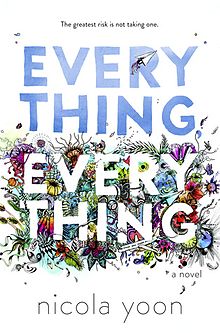

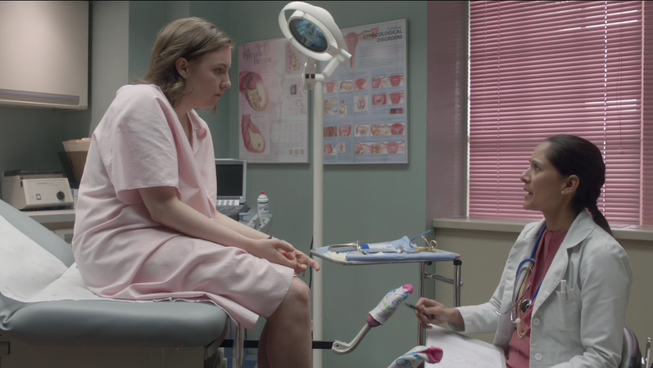
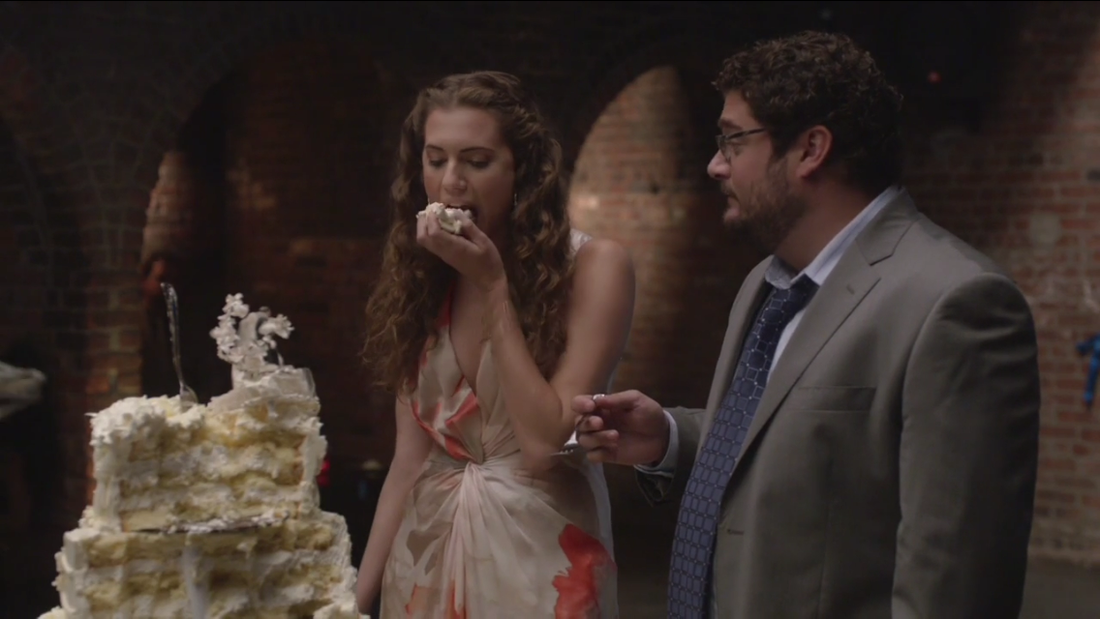
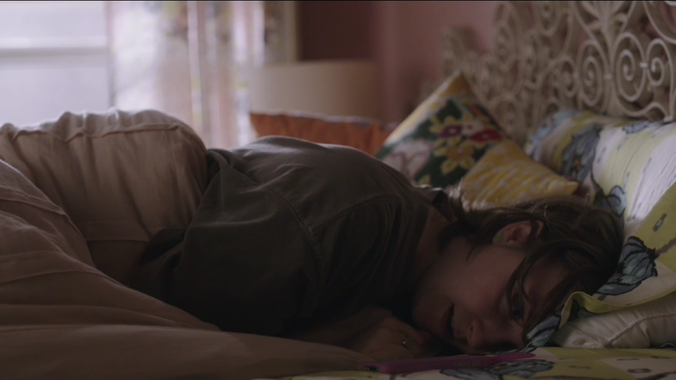
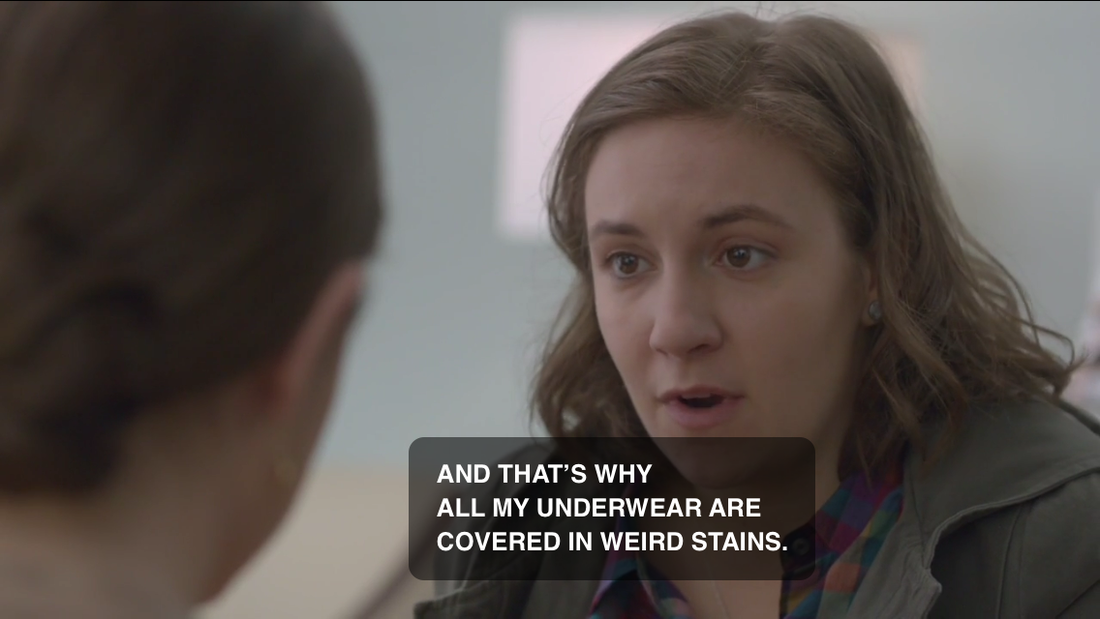

 RSS Feed
RSS Feed